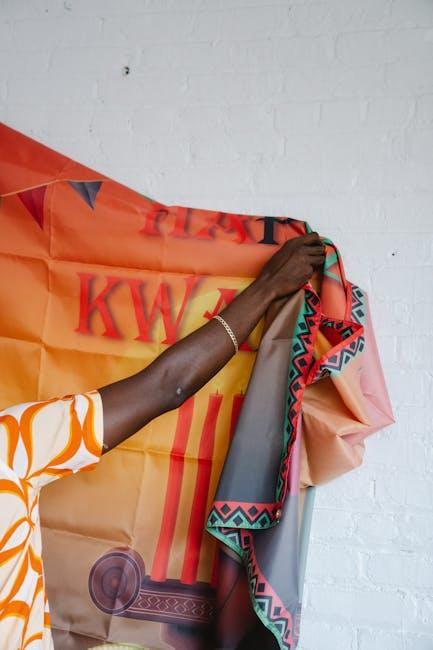In the ever-evolving tapestry of modern cinema, representation emerges not just as a trend, but as a vital thread weaving diverse stories into the cultural fabric. At the forefront of this movement is Nia DaCosta, a visionary filmmaker whose work resonates with authenticity and depth. In “,” we delve into an insightful dialogue with DaCosta, exploring her journey, her inspirations, and the transformative power of inclusive storytelling. Through her lens, we uncover the nuances of bringing underrepresented voices to the forefront and the profound impact this has on audiences worldwide. Join us as we navigate the intricate dance between art and identity, guided by one of the industry’s most compelling voices.
Exploring Authentic Voices in Cinema
In our conversation with director Nia DaCosta, we delved into the transformative power of cinema when it authentically reflects diverse voices. DaCosta, known for her groundbreaking work in films like Candyman, emphasizes the importance of genuine representation in storytelling. She argues that when filmmakers incorporate authentic voices, they create more relatable and impactful narratives that resonate deeply with audiences.
- Visibility: DaCosta highlights how seeing oneself represented on screen can validate personal experiences.
- Diverse Perspectives: Bringing varied voices into the creative process leads to richer, more nuanced stories.
- Empathy and Understanding: Authentic representation fosters empathy by allowing audiences to experience different cultures and viewpoints.
DaCosta’s insights remind us that cinema is not just about entertainment; it’s a powerful tool for social change and cultural dialogue. By prioritizing authentic voices, filmmakers can contribute to a more inclusive and understanding world.

Nia DaCosta on Diversity and Storytelling
Nia DaCosta has been a trailblazer in the film industry, championing the cause of diversity and inclusive storytelling. Her unique approach emphasizes the importance of showcasing a wide array of voices and experiences. In a recent conversation, DaCosta highlighted how authentic representation can deeply resonate with audiences, fostering empathy and understanding across different cultures and backgrounds.
- Authentic Characters: DaCosta believes that characters should reflect the real-world diversity of our communities, offering audiences relatable and genuine portrayals.
- Inclusive Narratives: By weaving diverse perspectives into her storytelling, she challenges conventional narratives, pushing boundaries and encouraging dialogue.
- Empowerment through Storytelling: Her films not only entertain but also empower marginalized voices, providing a platform for stories that are often overlooked.
DaCosta’s work underscores the idea that storytelling is a powerful tool for change, capable of shaping perceptions and inspiring future generations to embrace diversity as a strength rather than a challenge.

Challenges and Triumphs in Representation
In her journey through the film industry, Nia DaCosta has faced numerous obstacles but also celebrated significant victories. The challenges have been manifold, from navigating an industry historically dominated by a narrow range of voices to ensuring that diverse stories are told with authenticity and respect. These hurdles often manifest in the form of limited opportunities, biased perceptions, and the pressure to represent entire communities through a single narrative.
Despite these difficulties, DaCosta has achieved remarkable triumphs. Her work has not only resonated with audiences but also carved out space for more inclusive storytelling. Some of her key successes include:
- Breaking Stereotypes: DaCosta’s films often subvert traditional narratives, offering fresh perspectives and complex characters.
- Inspiring Future Creators: By leading with courage and conviction, she has become a role model for aspiring filmmakers from underrepresented backgrounds.
- Critical Acclaim: Her films have garnered both critical and commercial success, proving that diverse stories have universal appeal.
Through her work, DaCosta continues to challenge the status quo, illustrating the profound impact of authentic representation in media.

Crafting Inclusive Narratives for the Future
In our conversation with acclaimed director Nia DaCosta, the emphasis was on the transformative power of inclusive storytelling. DaCosta highlighted the need for narratives that reflect the diverse tapestry of our society, emphasizing how such stories can shape perspectives and foster empathy. She believes that the absence of representation can lead to a narrow worldview, while inclusive narratives open doors to understanding and connection.
DaCosta shared insights into her creative process, underscoring the importance of authentic voices in storytelling. She suggested key elements for crafting inclusive narratives:
- Authenticity: Ensuring stories are true to the cultures and experiences they depict.
- Diverse Voices: Collaborating with writers and creators from varied backgrounds.
- Empathy: Encouraging audiences to see the world through different lenses.
Through her work, DaCosta continues to champion stories that not only entertain but also educate and inspire, paving the way for a more inclusive future.

